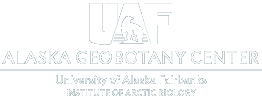
Examining the interactions between sea-ice, climate, permafrost and social ecology of the Yamal Peninsula, Russia
This NASA Land-Cover and Land-Use Change (LCLUC) project undertakes a synthesis of remote-sensing studies, ground observations and modeling to understand the social-ecological consequences of climate change and resource development on the Yamal Peninsula, Russia and relevance to the circumpolar Arctic. As part of the study, a research transect has been established along the Eurasia Arctic bioclimate gradient to examine the interactions between sea-ice, climate, permafrost and the social ecological systems of the region. Remote-sensing technologies are providing insights into how the terrain and anthropogenic factors of reindeer herding and resource development, combined with the climate variations on the Yamal Peninsula, affect the spatial and temporal patterns of permafrost and vegetation change and how those changes are in turn affecting traditional herding by indigenous people of the region.
Recent Publications & Workshops

2010 Expedition to Krenkel Station, Hayes Island, Franz Josef Land, Russia

The 2009 Yamal Expedition to Ostrov Belyy and Kharp, Yamal Region, Russia
Rapid Arctic Transitions Related to Infrastructure and Climate Change (RATIC) Workshop at Arctic Change 2014 in Ottawa, ON, December 8-12.
ArcticBiomass Workshop, Fairbanks, AK September 2-3, 2014: 21 participants from USA, Norway, Finland, UK and EU-Joint Research Center in Italy.
Get In Touch
The Alaska Geobotany Center is located on the West Ridge of the University of Alaska Fairbanks campus. Our office is located in room 252, on the second floor of the Arctic Health Research Building.

